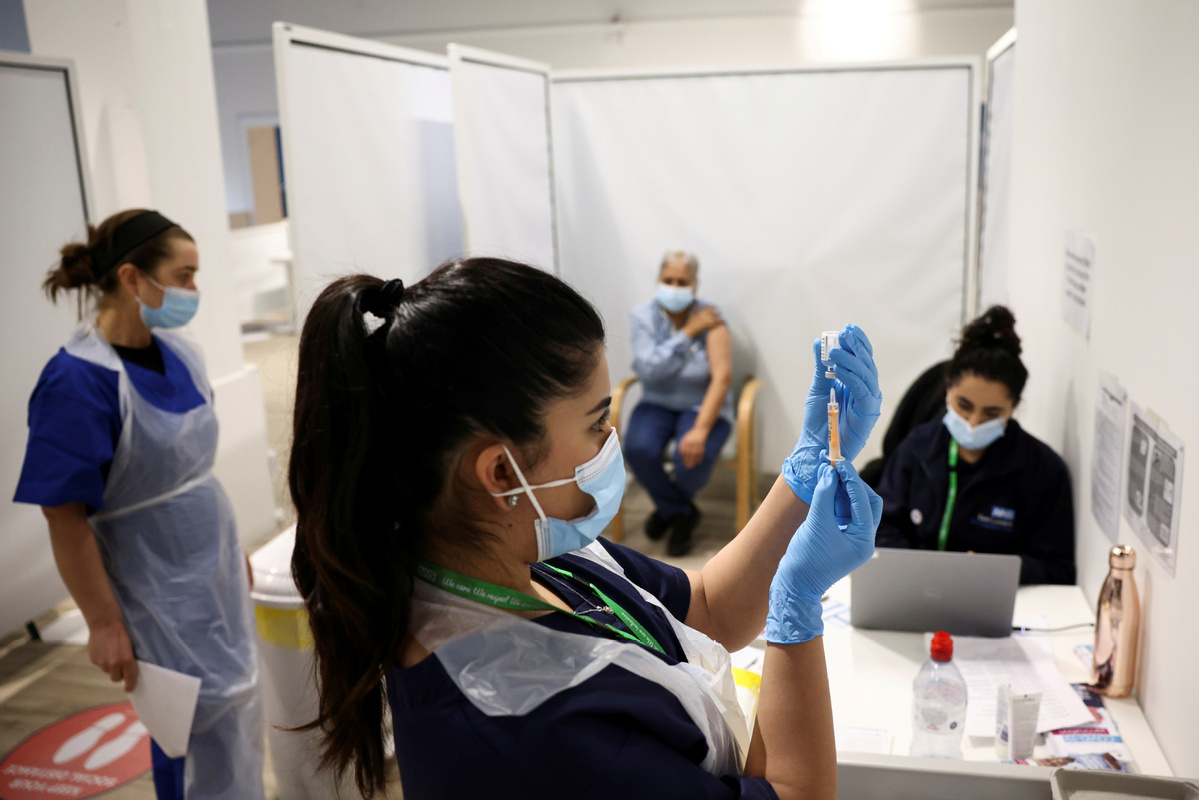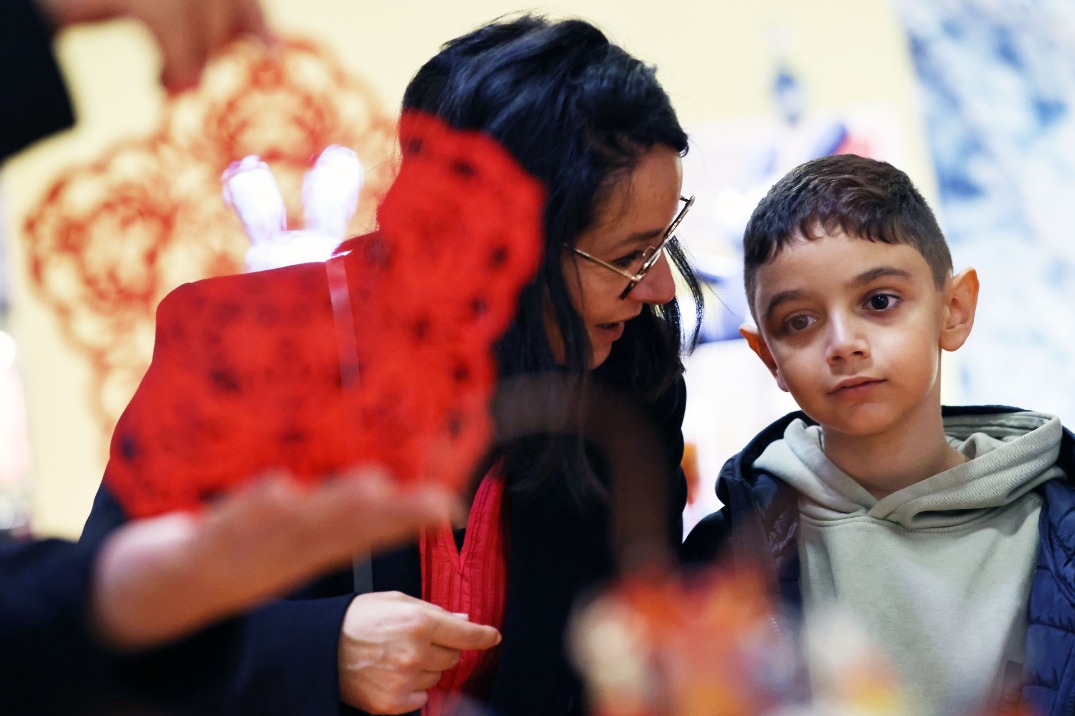COVID-19 variants throw cold water on vaccine plans
China Daily Global | Updated: 2021-02-19 13:34
Recent data suggests a significant drop in antibody levels against the virus mutations
A number of new coronavirus variants, which are found to be more transmissible and spreading rapidly, are causing great concern and posing challenges to COVID-19 vaccines.

The World Health Organization has warned that mutations of the coronavirus are spreading to wider areas.
The variant first identified in Britain has been reported in 94 countries and regions, while the variant first reported in South Africa has been reported in 46 countries and regions. The Brazilian variant has also been reported in 21 countries and regions.
Germany's Health Minister Jens Spahn said on Wednesday that the so-called British COVID-19 variant is spreading quickly in the country, now accounting for more than 20 percent of all tested cases, and nearly four times the rate from two weeks earlier.
Indian health officials said on Tuesday that cases of the South African and Brazilian variants have been found in the South Asian country.
At a White House briefing on Wednesday, US Centers for Disease Control and Prevention Director Rochelle Walensky said that the new coronavirus variants could lead to a rapid rise in COVID-19 cases, and could "dangerously accelerate the trajectory of the pandemic".
In a report released on Wednesday, researchers from the CDC and the Minnesota health department detailed cases of the British variant among eight Minnesota residents. Earlier modeling data suggested that this variant could become the predominant variant in the United States in March.
Ursula von der Leyen, president of the European Commission, announced that the European Union's executive body is setting up a new biodefense preparedness plan, named HERA Incubator, aimed at preventing another wave of the COVID-19 pandemic derived from mutations of the virus.
The plan is based on the cooperation of vaccine producers, researchers and public authorities.
The EU has already offered $271 million for studies on the new virus variants, work on adapting vaccines to become effective against them, and setting up a European network for clinical trials.
According to the European Centre for Disease Prevention and Control, the British variant appears to become dominant over previous variants in the EU. Other variants and mutations may emerge in the future.
The ECDC assesses the risk of further spread from variants as high to very high. Some variants appear to be more transmissible and could become the dominant variant, or even reduce the efficacy of vaccination campaigns. Likewise, future variants may not be receptive to current vaccines and Europe has to anticipate this risk.
The EU signed advanced purchase agreements with six biotechnological firms to buy about 2.6 billion vaccine doses for the bloc's 450 million people and its neighboring countries.
The bloc is aiming to vaccinate 70 percent of the adult population by the end of September. Some 22 million people have received one dose of the vaccine so far, while 7 million have been fully vaccinated.
The coronavirus variants have been challenging global vaccination efforts.
Findings of a laboratory study published in the New England Journal of Medicine suggests that the South African variant may reduce antibody protection from the Pfizer-BioNTech vaccine by two-thirds, and it is not clear if the shot will be effective against the mutation.
The study found that the vaccine was still able to neutralize the virus and there is no evidence yet from trials in people that the variant reduces vaccine protection.
Still, companies are making investments and talking to regulators about developing an updated version of their vaccines or a booster shot if needed.
Pfizer and BioNTech said they were doing similar lab work to understand whether their vaccine is effective against the variant first found in Brazil.
Moderna published its own findings in NEJM on Wednesday with similar data previously disclosed elsewhere that showed a sixfold drop in antibody levels against the South African variant.
The company also said the actual efficacy of its vaccine against the South African variant has yet to be determined. It previously said it believes the vaccine will work against the variant.
AstraZeneca said it expects to have a new version of its COVID-19 vaccine ready for use by this autumn.
























